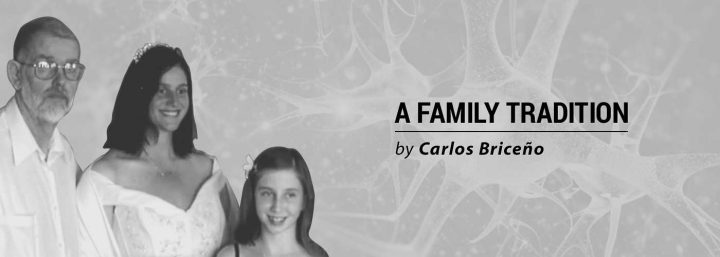The Realities of Rare Diseases

Social distancing seems to be the trend these days.
Several reality shows illustrate what I mean: participants practice social distancing and isolation to such an extent that everyone communicates to each other behind walls (in “Love Is Blind“) and computer screens (in “The Circle“).
Now, though, this is how most of the world actually communicates with each other. Reality television has now become like … could this be possible? Real-life reality!
Actually, no …
What a strange, strange world we live in when our real-life reality out-realities reality TV.
It’s obvious why reality television exists. It’s supposed to represent a hyperbolic version of our world. It also acts as a place to forget about our real lives because real life can be scary or overwhelming at times. Many appreciate the distraction, so it’s a staple of reality shows for people to yell angrily at each other or even fall in love — or, at the bare minimum, fake falling in love. That’s considered entertainment.
What happens when your real-life reality out-realities reality TV?
This is the world I’ve been living in since my wife and daughter were diagnosed with Huntington’s disease. It’s mind-boggling to process the reality that a gene — passed on from my wife’s father’s side of the family — is going to deteriorate their minds and bodies in horrific ways.
For weeks now, many people around the world have started to realize that a virus may deteriorate their bodies in horrible ways, possibly to the point of death. This reality rightfully frightens many people, but at the same time, many people have hope. Thanks to our efforts to flatten the curve, if people follow the correct preventive steps — such as social distancing and washing their hands for at least 20 seconds — the odds are they won’t get infected by the coronavirus.
My wife and daughter cannot socially distance themselves from the Huntington’s gene. No amount of washing their hands will prevent the gene from advancing its neurodegenerative marches of deterioration in their bodies. Many in the world are now experiencing a diluted version of the daily reality for people with rare diseases. This is a vivid reminder that every life has immense value.
That means we must make every effort to pour money, time, and resources into finding cures for those facing death sentences from rare diseases. Right now, I imagine that a lot of money, time and resources are being poured into finding a coronavirus cure. Don’t people with rare diseases deserve the same dedication?
Here’s my dream for the best reality television show of all time: a series that chronicles doctors and scientists working collaboratively and urgently. Big money goes to the winners who discover the cures for rare diseases.
Watch people pretend to fall in love? Or watch people work to save lives? Which show would you watch if your reality involved a loved one who’s suffering?
***
Note: Huntington’s Disease News is strictly a news and information website about the disease. It does not provide medical advice, diagnosis, or treatment. This content is not intended to be a substitute for professional medical advice, diagnosis, or treatment. Always seek the advice of your physician or other qualified health provider with any questions you may have regarding a medical condition. Never disregard professional medical advice or delay in seeking it because of something you have read on this website. The opinions expressed in this column are not those of Huntington’s Disease News or its parent company, Bionews Services, and are intended to spark discussion about issues pertaining to Huntington’s disease.







Leave a comment
Fill in the required fields to post. Your email address will not be published.